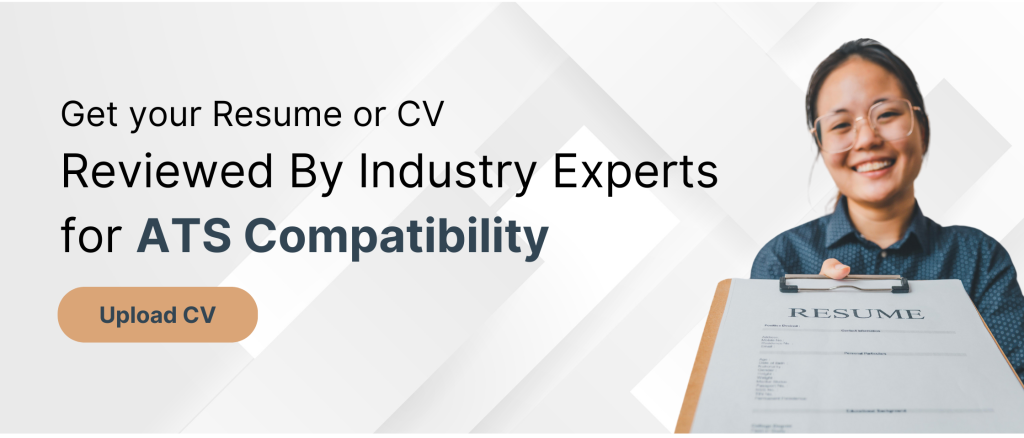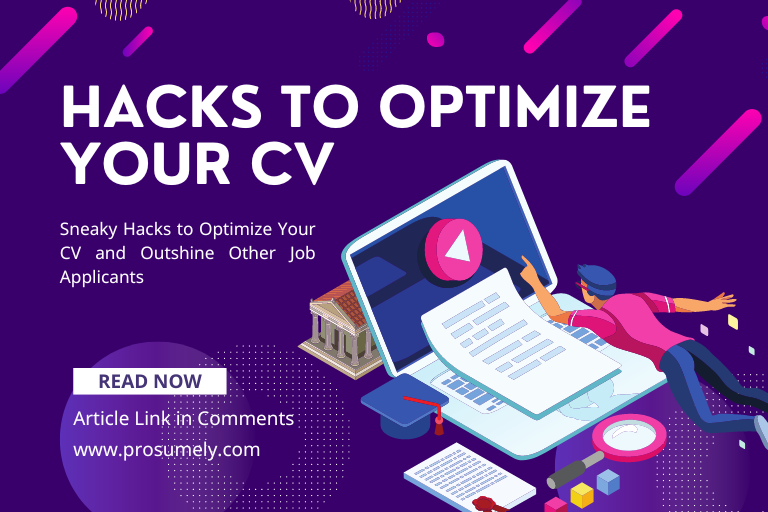How to Mention Education in Your Resume or CV [With Examples]
Introduction
When crafting a resume or CV, the education section is more than just a list of schools and degrees; it’s a testament to your academic journey and a reflection of your potential. Whether you’re a fresh graduate or an experienced professional, how you present your educational background can significantly impact your job application. This guide will walk you through the best practices for mentioning education in your resume or CV, complete with examples to illustrate these tips in action.

Understanding the Role of Education in Your Resume
Education in your resume serves as a foundation for your professional qualifications. For fresh graduates, it often takes center stage, showcasing academic prowess and potential. For experienced professionals, it complements a rich work history, highlighting ongoing learning and expertise. The key is to align your educational details with the job you’re aiming for, emphasizing relevance and impact.
Basic Formatting Tips for Education Section
Formatting is crucial for readability and impact. In a chronological resume, education typically follows the work experience section, while in a functional format, it can be more prominent. Use a clear, consistent layout, prioritizing schools, degrees, majors, and graduation dates. Ensure this section is easily scannable, enabling recruiters to quickly grasp your academic credentials.
Detailing Your Educational Background
List your degrees and certifications, starting with the most recent. If your GPA is impressive, include it. For recent graduates, details like relevant coursework can add depth, showcasing subject matter expertise and alignment with job requirements.
Recent Graduates: Highlighting Education
As a recent graduate, your academic achievements are your primary selling points. Emphasize honors, awards, relevant projects, and internships. These elements can demonstrate your skills, work ethic, and potential to prospective employers.
Experienced Professionals: Optimizing Education Placement
For seasoned professionals, the education section should balance and support extensive work experience. Focus on including degrees and certifications that add value and relevance to your professional narrative, avoiding redundancy.
Education Section for Career Changers
If you’re transitioning to a new career, your education can be a critical element. Highlight courses and degrees relevant to your new field, showcasing your dedication and transferable skills.
Online Courses and Continuing Education
Online courses and ongoing education demonstrate your commitment to continuous learning and adaptability. Present these credentials effectively, emphasizing how they enhance your professional qualifications.
International Education and Degrees
Navigating international education in your resume can be challenging. Address international credentials clearly, focusing on their recognition and relevance to the job market you’re targeting.

Certifications and Professional Development
Certifications, especially those recognized in your industry, can be as crucial as formal degrees. Strategically position them in your resume to showcase specialized skills and ongoing professional development.
Using Strong Action Verbs and Descriptive Language
Enhance the impact of your education section with dynamic language. Use strong action verbs and descriptive phrases to paint a vivid picture of your academic journey and achievements.
Common Mistakes to Avoid in Education Section
Steer clear of overloading your education section with irrelevant details. Tailor the information to suit the job you’re applying for, ensuring it adds value and relevance to your overall profile.
Adapting Education Section for Different Industries
The emphasis and presentation of education can vary across industries. Customize your education section to reflect the norms and expectations of your targeted industry, whether it’s tech, healthcare, education, or another field.
Cover Letters and Education
In your cover letter, briefly highlight your education in a way that complements and reinforces your professional experiences. Connect your academic background directly to the job requirements to strengthen your application.
FAQs on Education in Resumes
- How should I list my education if I have multiple degrees?
- Start with your most recent degree and work backward. List each degree with the institution, location, and graduation year. If relevant, include major subjects or specializations.
- Is it necessary to include my high school education?
- Generally, if you have completed a college degree or higher, you can omit high school education. However, if you’re a recent high school graduate with limited higher education, then include it.
- Should I mention my GPA in my resume?
- Include your GPA if it’s notably high (generally, above a 3.5) and you’re a recent graduate. For individuals who’ve been in the workforce for a few years, it’s less relevant and can be omitted.
- How do I handle education gaps in my resume?
- Focus on what you were engaged in during those periods, like any part-time work, volunteering, courses, or personal projects. If there were extenuating circumstances, you could briefly mention this in your cover letter.
- Can I include online courses in my education section?
- Yes, especially if they’re relevant to the job you’re applying for. List the course title, the platform or institution offering it, and the completion year. This shows a commitment to continuous learning.
- How do I list my education if I didn’t complete my degree?
- Mention the course or program you were enrolled in and the duration. You can also include the number of credits completed or highlight specific coursework relevant to the job.
Example: Entry-Level Resume Education Section
Bachelor of Science in Marketing University of XYZ, New York, NY | Graduated May 2023
- GPA: 3.8/4.0
- Relevant Coursework: Digital Marketing Analytics, Consumer Behavior, Brand Management
- Senior Project: Developed a comprehensive marketing plan for a local startup, increasing their social media engagement by 30%
- Clubs and Societies: Vice President of the Marketing Club, Member of the Entrepreneurship Society
Associate Degree in Graphic Design Community College of ABC, Albany, NY | Graduated May 2021
- GPA: 3.7/4.0
- Key Projects: Designed a new logo and branding elements for a non-profit organization as part of a class project
Certifications:
- Google Analytics Certified
- HubSpot Content Marketing Certification
This example demonstrates how a recent graduate can emphasize their academic achievements, relevant coursework, and related extracurricular activities. Including GPA, specific projects, and certifications adds depth and shows a proactive approach to learning and applying skills.
Example: Mid-Career Professional Education Section
Master of Business Administration University of XYZ, New York, NY | Graduated December 2018
- Specialization in Strategic Management
- Thesis: “Innovative Business Strategies in the Digital Age”
Bachelor of Arts in Communication Studies State University of ABC, Boston, MA | Graduated May 2012
- Graduated Cum Laude
- Relevant Coursework: Interpersonal Communication, Media and Society
Professional Development:
- Certified Project Management Professional (PMP), 2020
- Leadership Training Program, Dale Carnegie Training, 2019
In this mid-career example, the focus is on advanced degrees and professional development that enhance the candidate’s career progression. The education section is concise yet impactful, highlighting advanced studies and ongoing learning, which are critical for leadership and strategic roles. The inclusion of a thesis title and specific professional certifications aligns with a more advanced career stage.

Conclusion
Your education section is a vital part of your resume or CV, offering insights into your academic achievements and potential. By following these guidelines and examples, you can craft a compelling narrative that supports your career aspirations and showcases your qualifications in the best light.


![How to Add Experience in Your CV [With Examples]](https://prosumely.com/wp-content/uploads/2024/02/DALL·E-2024-02-01-19.50.00-A-visually-engaging-square-cover-image-for-a-blog-titled-How-to-Add-Experience-in-Your-CV-With-Examples.-The-image-should-feature-a-sleek-profess-768x768.png)
![How to mention achievements in your resume[with examples]](https://prosumely.com/wp-content/uploads/2024/02/DALL·E-2024-02-11-15.02.33-A-visually-engaging-and-professional-square-image-depicting-a-person-holding-up-their-resume-with-highlighted-sections-showcasing-achievements-and-ac-768x768.webp)

![How to Write an Impactful Career Summary in Resume [With Examples]](https://prosumely.com/wp-content/uploads/2024/01/DALL·E-2024-01-12-14.59.12-A-professional-and-engaging-blog-cover-image-for-a-blog-titled-How-to-Write-an-Impactful-Career-Summary-in-Resume-With-Examples.-The-image-should--768x768.png)
![How to write quantified statements in resume [30 Examples]](https://prosumely.com/wp-content/uploads/2024/01/DALL·E-2024-01-08-23.59.41-illustration-for-a-blog-post-about-resume-writing-featuring-a-professional-and-modern-design-with-a-stylized-representation-of-a-resume-including-se-768x768.png)